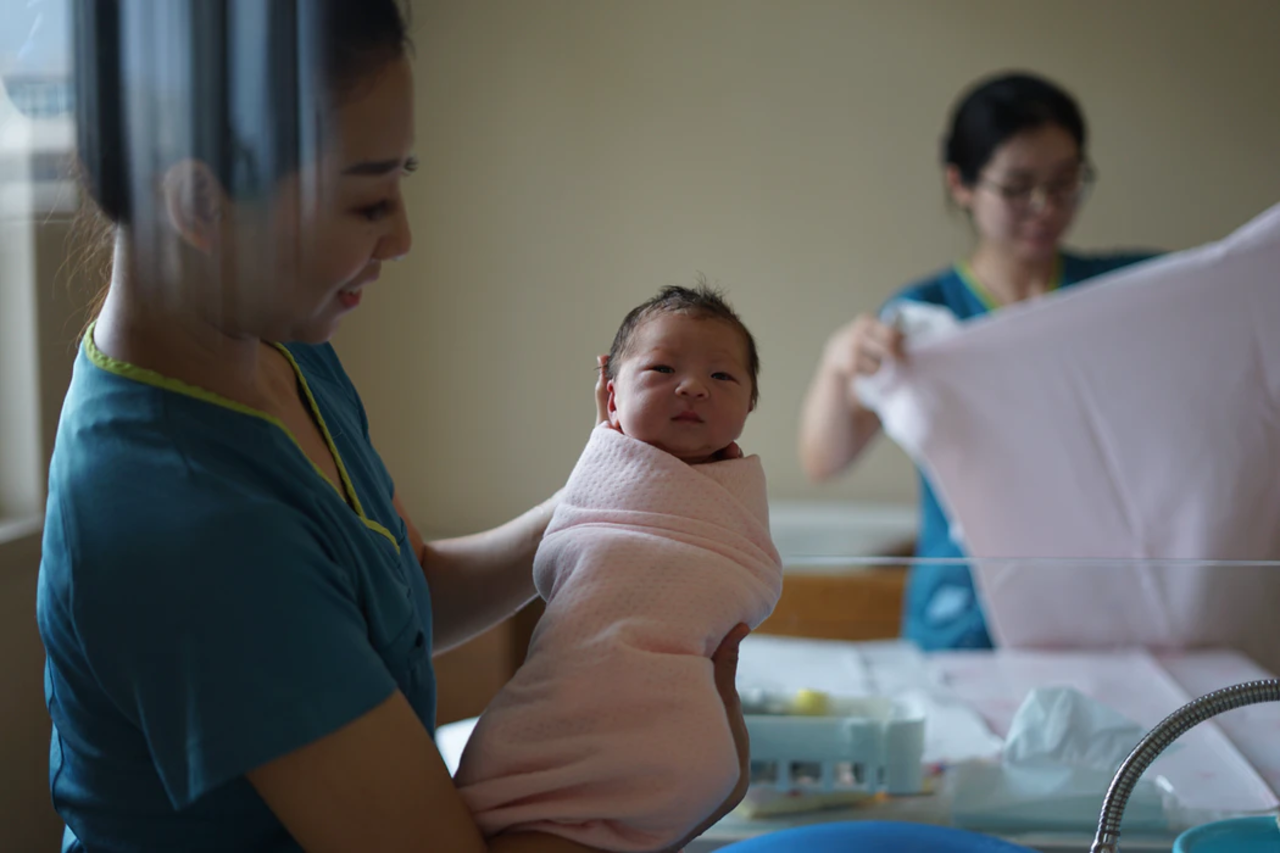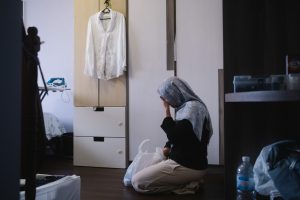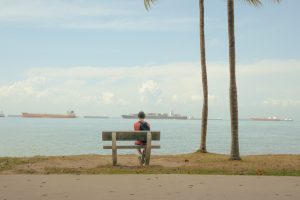Top image wdongxv/Unsplash
By the time you read this, Gabriela Ho will be a mother.
Gabby, my ex-colleague, is due to give birth to her first child six days after our phone interview (hello, socially distant journalism). Like any mother-to-be, she’s a little nervous about the delivery.
“It’s gonna be a natural birth, but my baby is a bit bigger than average, so it might take a while to push him out,” she says, sounding both matter-of-fact and slightly apprehensive.
Meanwhile, Elizabeth ‘Liz’ Morse, also an ex-colleague and first-time mum, has just managed to get her newborn daughter to take a nap before getting on the phone with me.
“Perfect timing,” she laughs.
“It’s been a huge learning curve for my husband and I,” she says of the last few weeks. “One moment we’re like, ‘this is hard work but it’s got beautiful moments and so far we’re okay’. In the next we feel like we’re in over our heads and have no idea how we’re gonna get through this. All these things wrapped up into one.”
Liz gave birth on March 5th, almost a month after MOH raised the DORSCON level to Orange. On March 11th, six days later, the WHO declared Covid-19 a pandemic. Since then, the outbreak has been pronounced the ‘greatest crisis’ facing the world since World War II.
In the time that Liz and Gabby have had their lives forever transformed, the world, too, has been navigating a new normal, waking up to all the ways in which things will never be the same.
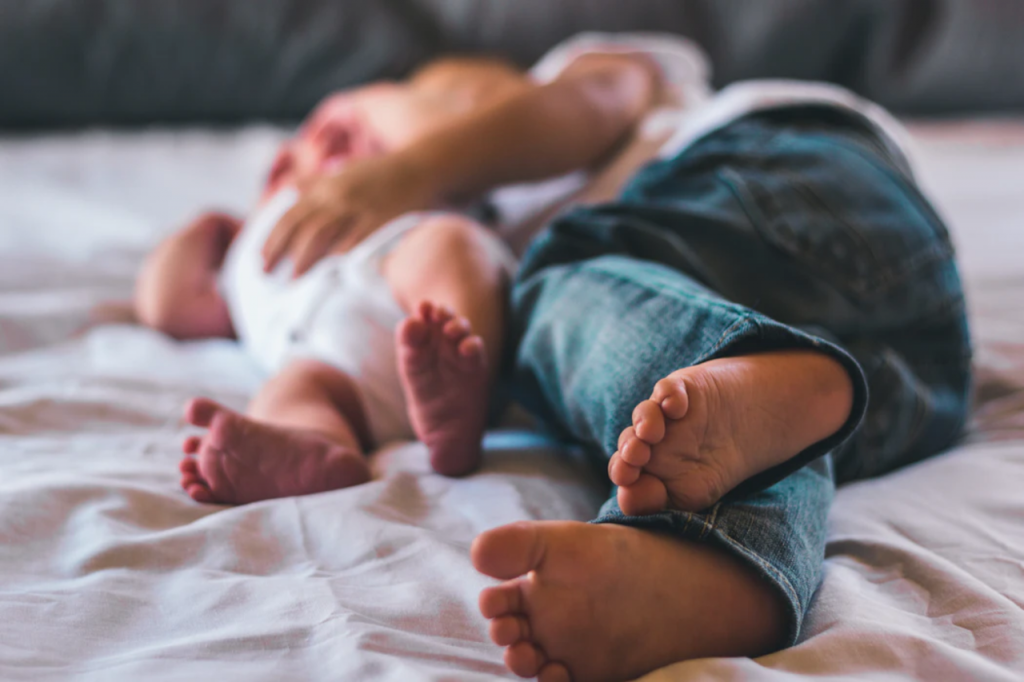
When the coronavirus first landed in Singapore in late January, just before Chinese New Year, Liz and Gabby were in the final trimesters of their pregnancies. Like most people, they were a little wary but not worried.
“I was like okay, it’s good to be cautious, but I wasn’t overly anxious. It wasn’t like I was staying home because I was afraid of catching the virus,” says Liz.
Similarly, while Gabby had been hearing about trouble afield from her sister in Hong Kong, she didn’t feel like things had changed in Singapore.
The virus had yet to make an impact here, both practically and psychologically. To Liz and Gabby, Covid-19 was a distant abstraction against the here-and-now of pregnancy: feeling their babies kick, being in discomfort virtually all the time, learning how to live in bodies they no longer recognised. Preparing to bring a new human into the world left very little bandwidth for anything else.
Then February happened.
Things continued relatively unchanged for Gabby, who went on maternity leave early in the month. Liz and her husband Anthony, however, found themselves right in the eye of the gathering storm.
Anthony works as a freelance actor and host, doing mainly travel programmes (you might have caught him hosting Channel NewsAsia’s The New Silk Road). In early February, when China’s caseload was nearing its peak, he was due to film a new series in Tibet.
Everything had been good to go when he boarded his flight from Changi. While he was still up in the air, somewhere between Singapore and Beijing, the project was called off. He walked off the plane to the news that he was out of work.
To make things worse, when he caught a flight back to Singapore the next day, he got caught up in the restrictions being imposed on travellers coming from China. He would have to go into isolation for two weeks, just as Liz was entering her final weeks of pregnancy.
“I was like, what? You mean I’m not going to be able to see my husband!?” recalls Liz.
“So that all became very real. And we were in our 9th month by then, getting close to our due date. If he had been quarantined right up till then it would have been hard.”
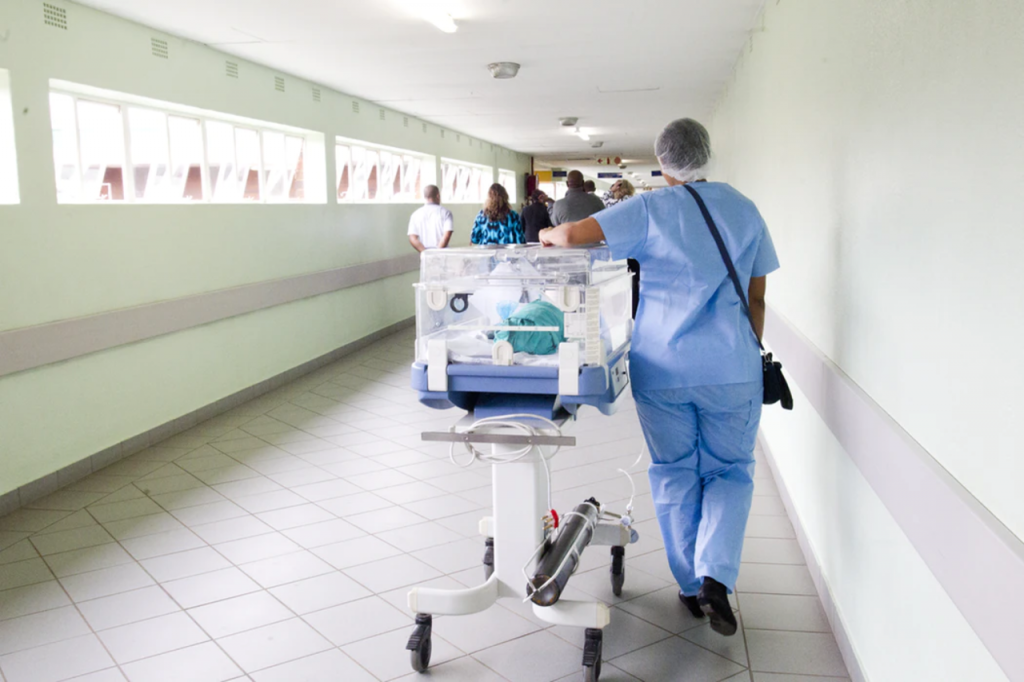
So far, Singapore has remained relatively insulated from the chaos affecting thousands of mothers-to-be around the world. With cities in lockdown and hospitals overwhelmed, women from Barcelona to Boston are bracing themselves to lose access to their doctors, give birth at home, or go weeks without seeing their families—not to mention terrified of getting sick. (We still don’t know much about transmission in utero, but there’s a possibility that pregnant mothers can pass the virus to their unborn children.)
Still, the outbreak has taken its toll here in other, subtler ways. The day after I speak with Liz and Gabby, two doctor friends tell me that elective Caesareans, like many other non-urgent surgeries, are being cancelled or rescheduled to free up bed space and manpower. (I reached out to several hospitals for comment on this, but did not receive a response.)
In addition, hospitals have been tightening their visitor policies to protect patients. Gabby tells me that at her delivery, only her husband will be allowed in, and only one visitor will be able to see her at a time after the birth. For families welcoming children in the coming months, a normally jubilant occasion—think of maternity wards strewn with flowers, stuffed animals, and adoring visitors—will have to be something much quieter.
Even delivery plans have been disrupted. Gabby and Liz mention that around late February, as the situation picked up, hospitals began asking gynaecologists to pick a single hospital to work from, rather than operating out of several hospitals as they normally would. (I also reached out to hospitals to verify this, but did not receive a response.)
As such, many mothers-to-be have had to make a choice: follow their gynaecologist, or stay with their hospital.
Gabby hasn’t been affected; her gynaecologist will be staying at the hospital she has chosen to give birth at. Liz and Anthony, however, weren’t as lucky. They’d planned to have the delivery at Mount Alvernia, but their gynaecologist was no longer based at that hospital. The policy had kicked in just days before she was due.
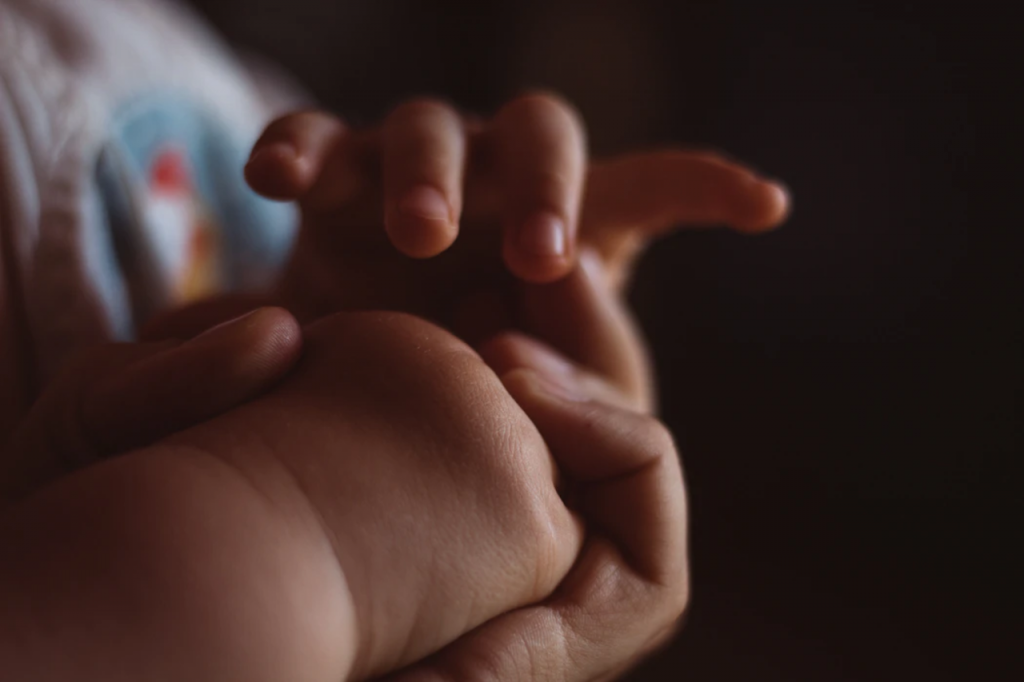
Since Eleanor’s birth, Liz has been spending time at home, recovering from the delivery and slowly adjusting to motherhood. With social distancing having kicked in, both she and Gabby are secretly glad to have an excuse not to constantly entertain visitors.
“Honestly, when you’re a new parent, your house is a riot,” says Liz.
“Everything smells like spit-up. You don’t feel beautiful. You’re on baby timetable, and you don’t really know when to tell people to come visit … it sounds a bit brutal, but to be honest, we’re not that ready to have people come over.”
“Everyone’s been super understanding and responsible about keeping their distance, but in that sense, social distancing is kind of nice.”
Gabby, counting down the days, is also looking forward to the space. She doesn’t expect to have many visitors after the delivery, though they might still hold a small man yue (the traditional Chinese celebration of a baby’s first month of life) if the situation allows for it.
“All things considered,” she admits, “I’ve been in a pretty privileged position throughout my pregnancy, even with Covid.”
For now, her family remains financially sound, although her husband is currently the sole breadwinner, and is supporting his retired parents on his income as well. At this advanced stage of her pregnancy, her in-laws have been taking care of most of the chores and grocery shopping, leaving her free to focus on preparing for motherhood.
“I’m just trying to be more intentional about my interactions and not feed into the paranoia. I don’t actively seek out the news about, like, how many people have died in China,” she says, when I ask if she’s actively tried to avoid getting stressed out.
“I just try to surround myself with things that are more positive, and take it a day at a time.”
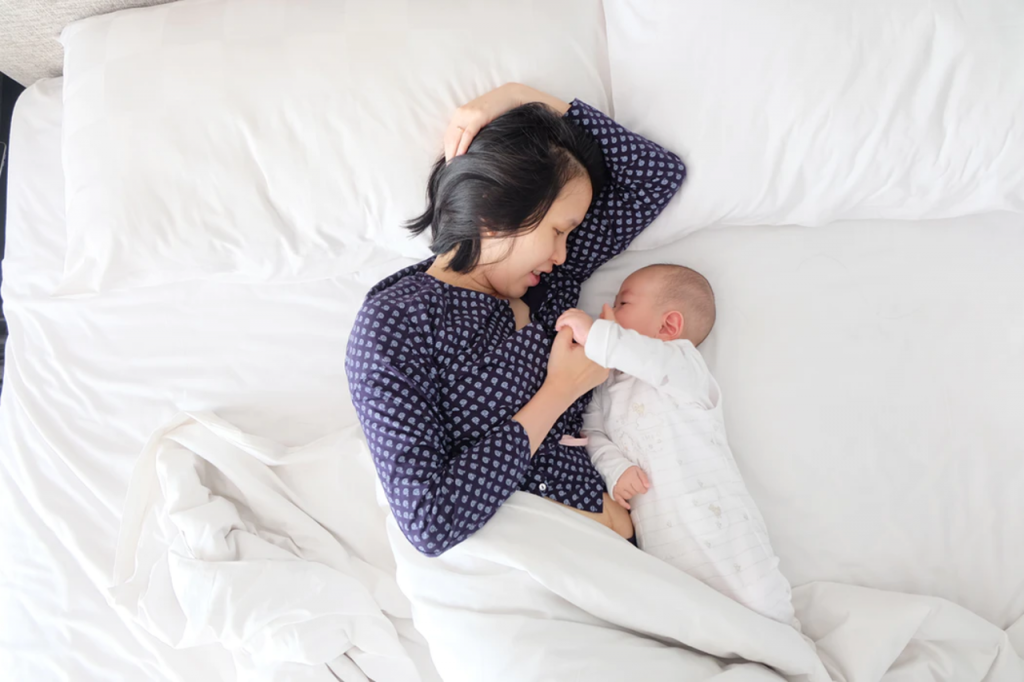
Liz, who has also never been big on social media, admits that this has probably helped keep her sane.
“I’m generally not glued to my phone watching updates,” she admits. “Although there have been a couple of times where my mum and Anthony were talking about the virus and I’m like, can we please have a break from talking about the virus?” (I tell her we would all like one, too.)
Covid-19 hasn’t entirely faded into the background, though. For her and Anthony, the much more pressing issue has been its impact on their finances.
Liz will be on maternity leave for several months, but more significantly, both she and Anthony are freelance actors. With shows being cancelled and work drying up—in particular, Anthony’s travel gigs, which provide the bulk of their income—neither of them have any jobs confirmed for the next few months.
“I have one paycheque coming in the next 45 days for a job I did some time ago, so that might meet us at a good point. But there aren’t any other outstanding cheques after that.”
Paying for Eleanor’s birth swallowed a chunk of their finances, although they had saved up to prepare for this. The rest of their savings will tide them over for a while, given that they’re mostly staying in with Eleanor, and Liz’s parents have chipped in to help for the time being. Still, diapers, formula, and paediatrician’s visits all add up.
“Is this something we talk about every day? No, because that would exacerbate the anxiety, and we don’t want to go down the slippery slope of feeding off each other’s anxieties,” she admits.
“But it’s definitely in the back of our minds. When is our next paycheque coming in? How are we gonna hustle during this time, now [that] it’s not just two adults we’re taking care of and we have a little one? All I can say is that this is where our faith comes in.”
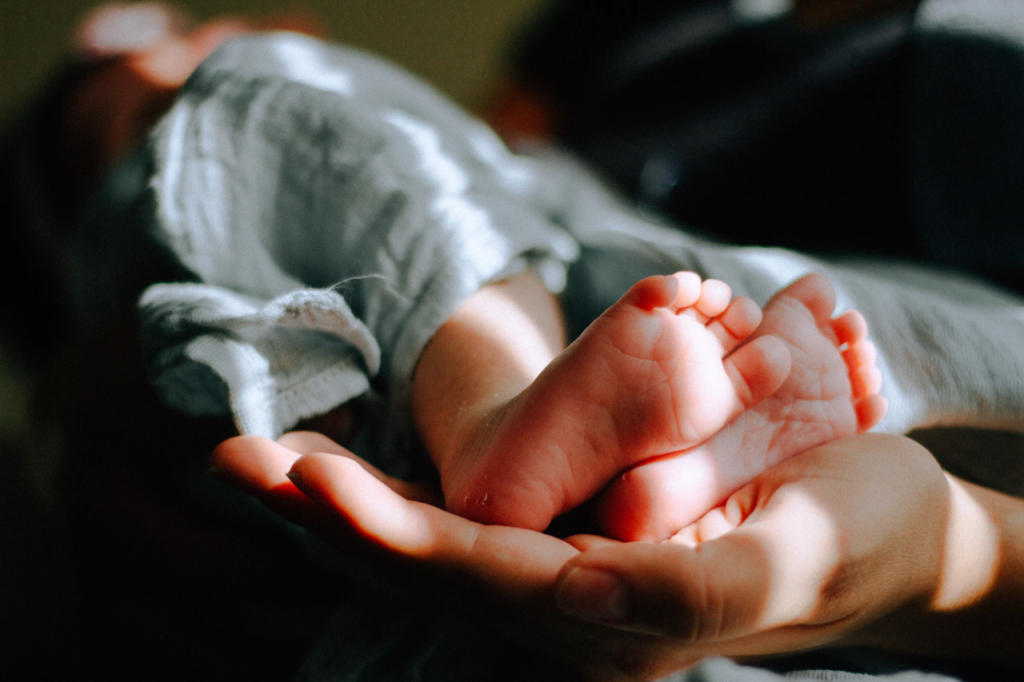
And yet, in many ways, even the extraordinary times we are living in can’t compare to the perpetual strangeness of motherhood.
Both Liz and Gabby assert that they feel lucky to be here in Singapore, where the outbreak has been relatively contained and the healthcare system appears to be coping with the strain. For now, kids can still catch a break at the playgrounds. Their husbands can still go to the supermarket.
On the outside, life is clinging to what normalcy it can. Internally, normal has been a foreign concept for the last nine months.
“My doctor told me I had the option of medically inducing yesterday, because the baby’s getting hard to push out,” says Gabby. “I was a bit stunned. Like, what?! In three days’ time I have to hold a baby?!”
“Even at this late stage in pregnancy, I was still pushing back against the idea of having to care for another person. My brain hasn’t caught up. I wake up in the morning and go, oh, you’re not out yet? Okay. But with each day that passes, I feel like it’s getting more and more real.”
Even for Liz, just coming to terms with her role as a parent—a journey marked by more ambivalence than many feel comfortable admitting—has taken far more energy than dealing with the madness of the last two months.
“It’s so surreal, Soph,” she muses. “Sometimes I say out loud to her, You are my daughter, and I am your mother, and it’s just the wildest thing.”
“I mean, when you meet your future husband it’s not like it happens overnight. You date them and then the wedding happens and you’re married and it’s that gradual progression.”
“But you give birth and this tiny, beautiful, miraculous human being is in your lap all of a sudden. You’re a mother overnight. I’m a mother for life now.”
No mother, given a choice, would want to welcome her child into a world battling a pandemic. Half the planet is in lockdown; our economies are imploding. Every day seems to bring some new devastation. We seem to be teetering on the brink of something we can’t define, bracing ourselves for even deeper loss.
And yet, the upheaval of the last two months—cancelled Caesareans, massive job losses, endless disruption—is, fundamentally, no different from the uncertainty which defines parenthood itself.
No mother, after all, can prepare to give birth in a pandemic any more than she can direct how her child’s life will turn out. Parenthood is the ultimate masterclass in how much of life is beyond our control. Whatever our hopes, Mother Nature will do as she pleases with us all.
“It’s a bit unfortunate that Covid-19 has hit at this late stage of pregnancy, but I think the only thing I can do is take it a day at a time,” says Gabby.
“In terms of the relative uncertainty of Covid versus the real uncertainty of parenthood, the real uncertainty trumps it every time. How my child will turn out, if he’ll be healthy, whether he’ll have any hereditary or neurological disorder … all that far outweighs Covid.”
Send us your thoughts on this story at community@ricemedia.co.

